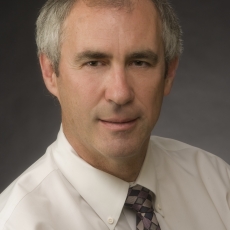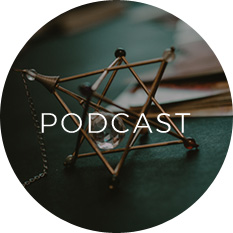The Spinal Surgeons Guide to Ending Pain without Surgery

At age 40, Doctor David Hanscom experienced his first panic attack while driving over a bridge. Before that he didn’t know what anxiety was like or the chaos it can cause. Doctor Hanscom’s problem developed into an extreme anxiety disorder that spanned 13 years. He learned, “The rational brain cannot win over the subconscious brain.”
The Root of Chronic Pain
Doctor Hanscom believes that anxiety is at the root of chronic pain. “If you think about this carefully, your entire body is revolved around avoiding anxiety.” Anxiety affects every organ in the body, affecting your pain levels, and thus your emotions. It starts a cycle of anxiety-pain, anxiety-pain, etc. The brain gets more ingrained with the anxiety and adrenaline cycle over time.
“Every human being has crazy thoughts in their brain just by definition because the brain works by association. So, you get some crazy associations in there that are sort of random and by tossing those aside you just give them power.” ~Dr. Hanscom
It is often the people who care most that burnout from thought suppression. http://cbsloc.al/1BJZXc7 @DrDavidHanscom @mistressoftea
Through a book, Hanscom learned you could shift your thoughts through writing them out. Expressive writing helped profoundly, and this was the beginning of his process development. “What the writing does is sort of separate you from the noise in your head.” By adding in active meditation, better sleep, exercise, and positive substitution, Hanscom had discovered a formula for releasing pain.
By tossing random thoughts aside, you give them power. What can you do instead?
The Process to Change the Way Your Brain Behaves Awareness ~ Detachment ~Reprogramming
1. Write down exactly how you feel (grandiose, delusional, depressed, angry…no matter). 10-15 minutes morning and night can be the most helpful. Look at it and separate yourself from it as much as possible.
2. Positive Substitution (This is not the same as “positive thinking.” You want to replace the anxious behaviors with something more relaxing- art, music, etc. Something active.)
3. Sleep (If you wake up in the middle of the night, try the negative writing. Get the thoughts down on paper. Then go back to sleep. Sleep is crucial.)
4. Exercise- specifically weight lifting which helps shift your pain (The experience of exercising in a gym is best).
5. Forgiveness. Compassion plays a deep role in healing ourselves.
Medication may be necessary in the beginning, but the goal is to use these other processes to eliminate the need. You have to be willing to give up the victim role and change. You have to understand that mental pain and physical pain are processed in the same part of the brain. “Anxiety, anger, and pain are all the same thing, so when pain drops anxiety drops, and when anxiety drops pain drops.”
Eventually, you put your nervous system in a new alternative and your brain starts to physically change. The pain, anxiety, and adrenaline begin to drop. It is not a one-time fix. It is a process that you need to continue for the health of your body and emotional system. As you become more aware of your body’s responses, you can become more aware of when to change your patterns and environment.
For More, Listen in to this week’s episode of Change Maker: The Spinal Surgeons Guide to Ending Pain without Surgery http://cbsloc.al/1BJZXc7
70% of the US population is on pharmaceuticals at any given time. 70 Million suffer from chronic pain. It’s time to change the game and look at ways to heal without side effects. One spinal surgeon has found the way. David A. Hanscom, M.D – is an Orthopedic Spine Surgeon who helps patients heal chronic pain without surgery or meds…but how? Through a method of sleep, emotional healing, and forgiveness, he has a 100% success rate in helping his patients manage chronic pain. He offers success though a 5-step process including sleep, journaling, and forgiveness. http://cbsloc.al/1BJZXc7
You can find Doctor David A. Hanscom at http://www.drdavidhanscom.com If you are interested in digger deeper into Daniel Wegner’s work and Thought Suppression, mentioned in the podcast, visit:http://scholar.harvard.edu/dwegner/publications/paradoxical-effects-thought-suppression
If you have a friend you think would benefit, share if you care!



